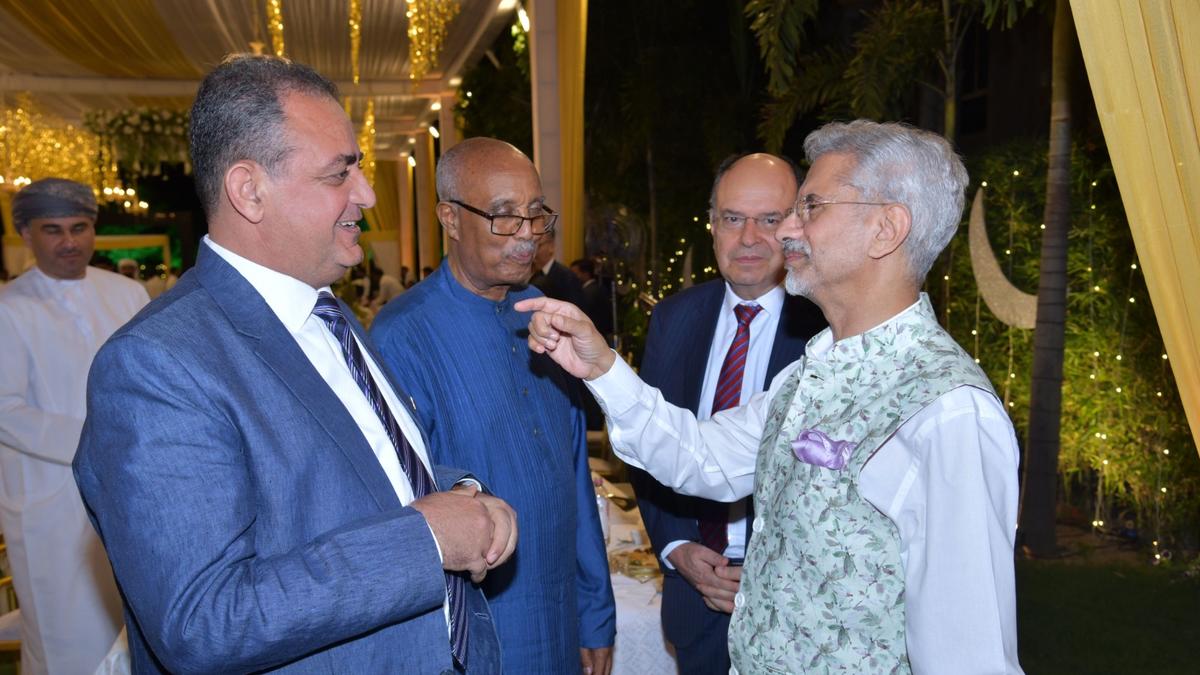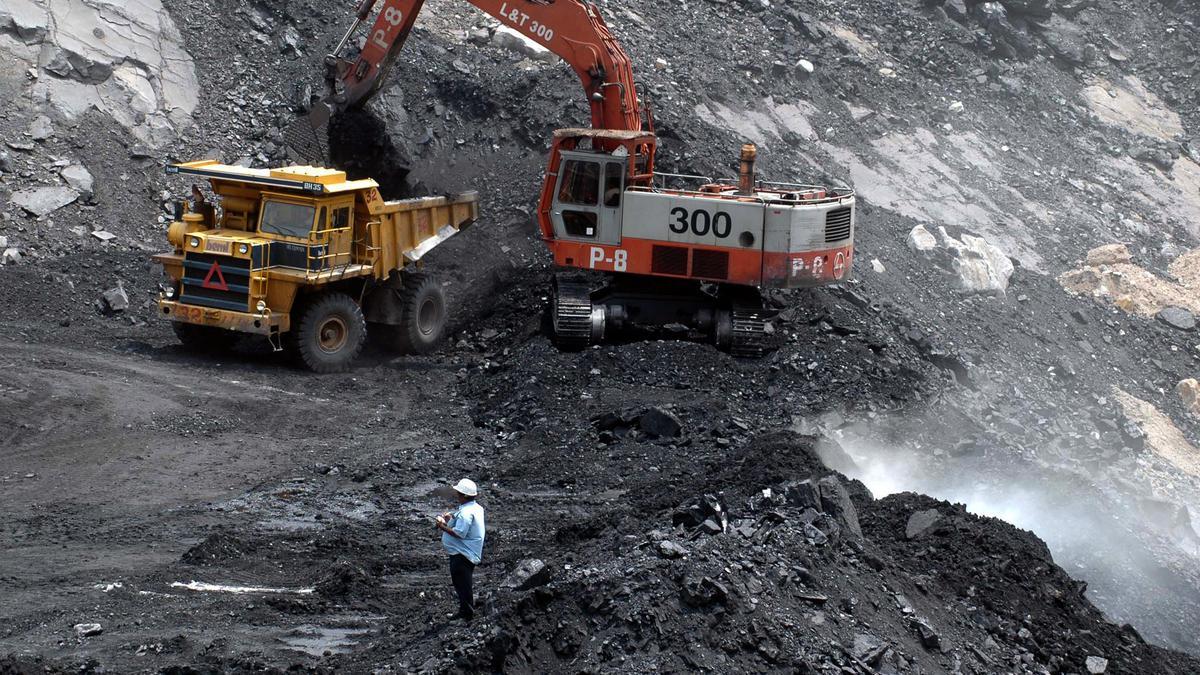
Abed Elrazeg Abu Jazer with S. Jaishankar at a recent diplomatic event.
| Photo Credit: Special Arrangement
“I am from Gaza.” This is how Abed Elrazeg Abu Jazer, the chargé d’affaires of the Palestine Embassy in India, introduced himself to External Affairs Minister S. Jaishankar at a Deepavali event organised by the External Affairs Ministry in New Delhi on October 29.
The idea of emphasising his origin, as Mr. Abu Jazer would later recollect, was to grab attention, and he did succeed in striking a conversation with both Mr. Jaishankar and Foreign Secretary Vikram Misri.
Mr. Abu Jazer took over after the previous Palestinian Ambassador, Adnan Abu Al Haija, retired and left for Tunis to be with his family.
In normal circumstances, becoming the chargé d’affaires would have called for a celebration, but for Mr. Abu Jazer, this new responsibility came with its own emotional weight. The conflict in Gaza, where he was born and educated, has profoundly affected him and his family, just like everyone else in the area.
For the first seven months of the war, he was not able to sleep peacefully as his wife, Naela, and their children were stuck in Gaza. They lived in Rafah that was less affected by the Israeli bombings initially but as the bombings spread and the food scarcity deepened, they called Mr. Abu Jazer to do something. After weeks of trying, they managed to leave for Cairo, where he met them in May. But the concern that has been draining Mr. Abu Jazer at present is the well-being of his 90-year-old father, Mohammad Abu Jazer, who has moved with his youngest son from Rafah to Khan Younis.
“The condition of Rafah is extremely difficult. I can barely speak with my father in a week or 10 days as he has been moving from place to place and now has been displaced to Khan Younis. He told me that there is no food. Money is useless as they can’t get any food anywhere. There is no food in the markets, no food at any home,” said Mr. Abu Jazer, explaining that telephone connection is possible only occasionally as there is no electricity or Internet. “I don’t know if I will meet my father again and in what condition,” he added.
His other concern is his residence in Rafah that he built while working as a journalist. Before being posted to New Delhi in 2014, for more than two decades he worked as a journalist in Gaza. He started with Al Qabas, a Kuwaiti newspaper, and worked with Qatar’s Al Watan and Al Hayat Al Jadida and covered the 1996 election in Palestine that Yasser Arafat’s Fatah won.
He also worked as the press adviser to the Palestinian Authority in Gaza. The Palestinian Authority’s hold in Gaza underwent a total change with the election victory of Hamas in 2006. Mr. Abu Jazer’s life was thrown upside down in 2014 when the Israeli bombings hit Rafah.
“Rafah was the worst affected by the 2014 bombing by Israel. It was very difficult for me personally and that is when I chose a foreign posting and the PA sent me to India,” he said, recollecting the circumstances in which his stint as a diplomat began.
Apart from professional accomplishments in New Delhi, he also managed to earn a Ph.D. from Jamia Milia Islamia on India’s Palestine policy.
Sitting in his house on the embassy premises in New Delhi’s Chanakyapuri, Mr. Abu Jazer recollected that he built his house with earnings from a career spanning three decades and now he does not know the condition of his house. His neighbours, who have been similarly displaced, informed him that all the houses in his neighbourhood in Rafah have been destroyed. Just before Deepavali, he was told over phone that one of his neighbour had taken his bike out to buy bread but was killed in a drone attack.
Life in Gaza has never been easy as the struggle with Israel has been a way of life for the Palestinians there. But the Israeli attacks of the past one year have no precedence. “My father was born in Palestine that existed before Israel was created in 1948 and he has lived through the wars of 1967, 1973, Intifada, but even he tells me that we have never experienced devastation on this scale,” he said.
Published – November 03, 2024 11:59 pm IST










![Best Weight Loss Supplements [2022-23] New Reports!](https://technologytangle.com/wp-content/uploads/2022/12/p1-1170962-1670840878.png)




